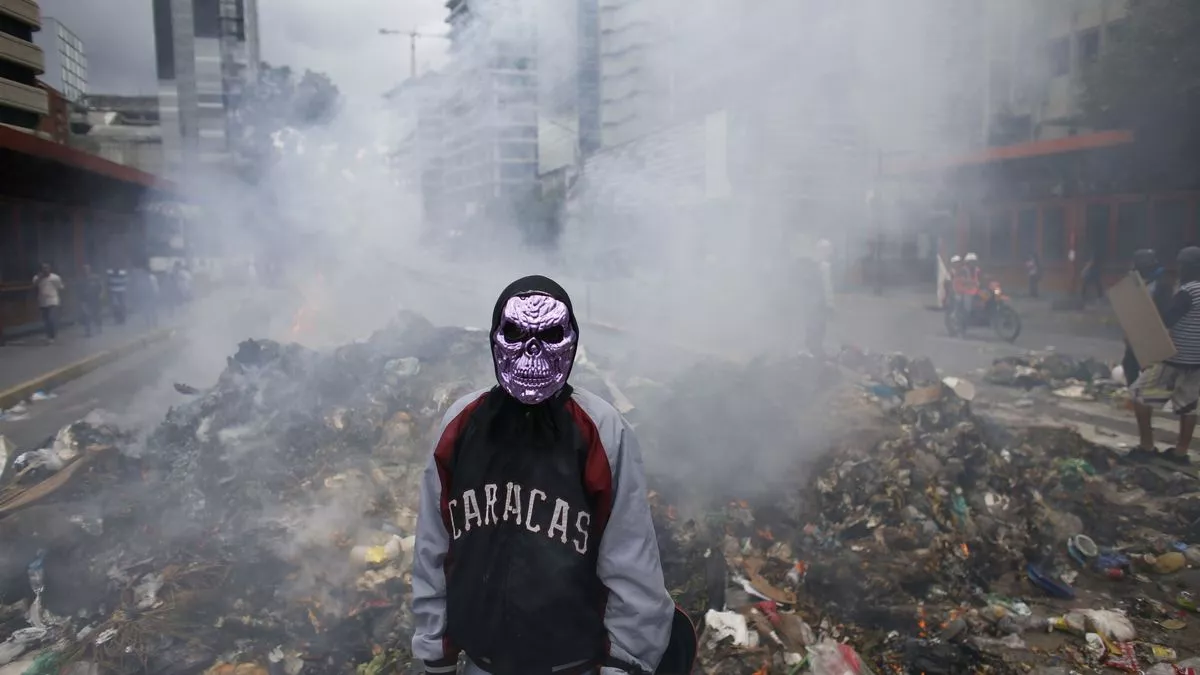Overview of Global Travel Restrictions
Travel restrictions vary greatly across countries, impacting how easily tourists can visit. Key factors include visa requirements, political situations, and health regulations, all of which can create barriers for potential visitors.
Visa Requirements and Exemptions
Many countries have specific visa policies that can affect tourism. For example, some nations require visas for most foreign visitors, while others offer visa-on-arrival or visa-free entry for certain nationalities.
Visa requirements often depend on the traveler’s country of origin.
Common categories of visas include:
- Tourist visas: For leisure travel, typically short-term.
- Business visas: For work-related trips.
- Transit visas: For passing through a country.
Failure to obtain the correct visa can lead to denied entry, making itinerary planning crucial. Additionally, some nations have specific exemptions for certain countries, allowing them to enter without a visa for short stays.
Political and Security Challenges
Political unrest and security issues can make travel to certain countries more difficult. Travelers might face restrictions due to ongoing conflicts, civil unrest, or terrorism threats.
Some regions may issue travel advisories that recommend against visiting.
These advisories can vary in severity, from “exercise caution” to “do not travel.” Common areas with heightened risks include:
- Conflict zones.
- Areas with significant crime rates.
- Regions undergoing political transitions.
Travelers should stay informed about the political climate in their destination to ensure safety and compliance with any travel restrictions.
Health and Vaccination Policies
Health regulations play a critical role in travel restrictions. Some countries require proof of vaccinations for diseases like yellow fever or COVID-19.
These policies are often updated based on current health situations and outbreaks.
Travelers should check the latest health guidelines from designated authorities.
Important health considerations include:
- Required vaccinations.
- Recommendations for preventive medications.
- Quarantine rules upon arrival.
Certain regions may impose additional health checks, such as temperature screenings, which can delay entry or cause entry denial. Keeping up with health requirements is crucial for a smooth travel experience.
Case Studies of Select Countries
Certain countries present unique challenges for tourists. This section examines the specific conditions and limitations in North Korea, Eritrea, Bhutan, and Saudi Arabia, all of which affect travel experiences.
North Korea: Strict Entry Conditions
North Korea has some of the most rigid entry rules in the world. Tourists must obtain a visa beforehand, which can be difficult due to strict government regulations.
Travelers are required to be part of an organized tour with approved guides. Independent travel is nearly impossible.
Access is limited to specific areas. Visitors cannot freely explore cities like Pyongyang without a guide, restricting their experience.
Failure to comply with the rules can lead to severe consequences, including arrest or deportation. This makes North Korea a challenging destination for many tourists.
Eritrea: Limited Tourist Access
Eritrea poses distinct travel challenges due to its limited tourist infrastructure. Visitors frequently face restricted access to certain areas, including the capital, Asmara.
The government controls the flow of information and permits, often requiring advance approval for travel plans. This creates uncertainty for potential visitors.
Eritrea has few hotels and limited transportation options. Traveling within the country can be complicated, sometimes leading to delays.
Despite its beauty, including unique architecture and coastal views, the difficulties discourage many would-be tourists.
Bhutan: Tourism by Invitation
Bhutan has a unique approach to tourism that emphasizes quality over quantity. Tourists are required to book their visits through licensed travel agents.
There is a minimum daily spending requirement, which can be costly for some. This policy aims to preserve the nation’s culture and environment.
Limited infrastructure exists to support large numbers of visitors at once. As a result, not everyone can easily experience its landscapes and monasteries.
This model ensures that the effects of tourism are managed, making Bhutan both exclusive and challenging to visit.
Saudi Arabia: Cultural Expectations and Limitations
Saudi Arabia has specific cultural expectations that can create challenges for tourists. Dress codes are enforced, with women required to wear abayas in public.
Certain behaviors, such as public displays of affection, are prohibited. This can create discomfort for some visitors unfamiliar with these customs.
The country has recently opened up its tourism sector with the introduction of tourist visas. However, access can still be complicated depending on the visitor’s nationality.
Tourists should be aware of cultural nuances and laws to avoid misunderstandings during their stay.
Factors Impacting Travel Difficulty
Several factors make certain countries more challenging for tourists to visit. Understanding these elements can help travelers prepare better and make informed choices about their destinations. Key issues include geopolitical tensions, difficult terrains, and economic conditions.
Geopolitical Tensions and Warfare
Geopolitical tensions can severely restrict travel. Countries experiencing conflict often have unstable environments. This instability leads to safety concerns for visitors.
For instance, nations like Syria and Afghanistan are affected by ongoing warfare. Tourists may face risks such as violence, kidnappings, or attacks. Governments frequently issue travel advisories, warning against visits to these areas.
Travel insurance may not cover trips to conflict zones, adding another layer of difficulty. Organizations that promote tourism often avoid such countries, leading to fewer resources for planning safe visits.
Remote and Inaccessible Terrains
Some countries, particularly in isolated or mountainous regions, pose challenges due to their geography. Locations like Bhutan or parts of Mongolia require extensive travel arrangements. Accessibility can be limited, with few transportation options.
Travelers may face difficulties reaching popular sites if road conditions are poor or infrastructure is lacking. Heavy rain can make roads impassable, further complicating travel plans.
In these regions, tourism services may be fewer or less developed. Visitors might find themselves without essential amenities such as reliable accommodations or healthcare, which can deter travelers seeking comfort and safety.
Economic Sanctions and Their Effects
Economic sanctions can impact travel significantly. Countries such as North Korea face strict limitations on trade and tourism. These restrictions can make it difficult for travelers to find services or navigate the area effectively.
Limited availability of goods, including food and materials, can frustrate tourists. High costs or lack of access to credit cards can also complicate financial transactions in these countries.
Moreover, diplomatic relations between nations affect citizens’ ability to travel. Citizens from certain countries may need special permissions or face additional scrutiny when visiting before they can enter.
Travel Documentation and Preparation
Traveling to certain countries can require careful planning and specific documentation. Knowing what is needed ahead of time can make a trip smoother. Here, essential aspects of travel preparation are outlined.
Special Permits and Letters of Invitation
Some countries require special permits for entry, particularly if the traveler wishes to visit restricted areas. For example, accessing certain regions in countries like Bhutan or Tibet requires prior approval.
Additionally, a letter of invitation may be necessary. This document, often from a host or organization in the destination country, confirms the traveler’s purpose and accommodations.
Key Points:
- Check specific entry requirements for the destination.
- Obtain necessary permits in advance.
- Prepare letters of invitation if needed.
Embassy Interviews and Background Checks
Travelers may need to go through embassy interviews as part of the visa application process. Some non-visa countries might also require background checks for those with specific travel intentions.
These interviews can help validate the traveler’s plans and ensure compliance with local laws.
Important Steps:
- Contact the local embassy for interview requirements.
- Prepare answers to potential questions about travel intentions.
- Submit to any background checks promptly.
Liaising with Tour Operators
Partnering with established tour operators can greatly ease the travel planning process. These operators are familiar with the complexities of travel documentation for various regions.
They can provide guidance on necessary permits, arrange for letters of invitation, and assist with the visa process, if required.
Benefits of Using Tour Operators:
- Expertise in specific country requirements.
- Assistance with documentation.
- Support in case of unexpected changes or difficulties.
By focusing on these aspects, travelers can better prepare for their journeys to challenging destinations.
Tips for Successful Entry
Navigating entry into challenging countries requires careful planning and awareness. Understanding local customs, securing valuable information, and preparing for emergencies are essential for a smooth experience.
Cultural Sensitivity and Local Customs
Respect for local customs can significantly enhance a traveler’s experience. Each country has unique traditions, beliefs, and behaviors. Tourists should research cultural norms before visiting.
For example, in some countries, greeting customs are vital. In Japan, a bow is preferred, while in many Middle Eastern countries, a handshake is common. Dressing appropriately is crucial as well. In many cultures, modest attire is expected, especially when visiting religious sites.
Additionally, travelers should be aware of local etiquette, such as tipping practices and dining customs. Educating oneself about these aspects can prevent misunderstandings and promote goodwill with locals. Engaging positively can lead to a richer travel experience.
Securing Reliable Information and Contacts
Relying on verified information can aid in overcoming entry challenges. Before traveling, individuals should gather details about visa requirements and health advisories. Government websites and official travel advisories are useful resources.
Travelers should also establish contacts in the destination country. This can include local guides or travel agencies that understand the intricacies of travel within that location. Such contacts can provide insights on safe areas, cultural tips, and best practices for navigating local laws.
Traveling with prepared documentation, such as copies of important papers, can ensure a smoother entry. It’s advised to keep emergency contact numbers handy, including the local embassy or consulate. This can provide reassurance in challenging situations.
Emergency Planning and Support
Planning for emergencies ensures safety while traveling. Travelers should always have a contingency plan. This might include identifying local hospitals, police stations, or tourist assistance centers.
It is recommended to register with the local embassy or consulate upon arrival. This can facilitate necessary support in urgent situations. Additionally, a list of personal emergency contacts should be accessible.
Purchasing travel insurance covering health, theft, and cancellations is also beneficial. It helps mitigate potential issues, allowing travelers to focus on their journey. Regular check-ins with family or friends back home can offer an added layer of security and comfort.
Frequently Asked Questions
Traveling can present various challenges, especially when it comes to meeting visa and entry requirements. Certain countries are known for their strict regulations that can complicate travel plans for tourists.
What are the top countries where getting a tourist visa is particularly challenging?
Countries like Russia, China, and India often have complicated visa applications and requirements. Tourists may need to provide detailed itineraries, accept longer processing times, and navigate local bureaucracies.
Which nations have the most stringent entry requirements for tourists?
Nations such as Saudi Arabia and North Korea impose strict entry requirements. Visitors may face restrictions on travel within the country and must adhere closely to local laws.
What are some countries that US citizens face difficulty traveling to?
For US citizens, countries like Iran and Syria present significant travel challenges. They often require special permissions or have restrictions due to political issues.
Which countries have the most complicated processes for obtaining citizenship?
Countries such as Japan and Switzerland have long and detailed processes for citizenship. Stringent language requirements and residency obligations can make the process particularly difficult.
What are some of the least visited countries by tourists due to strict policies?
Countries like Bhutan maintain strict tourism policies, limiting visitor numbers and requiring permits. This can keep the number of tourists relatively low.
Where are the toughest places for travelers to gain entry in Europe?
In Europe, places like Belarus and Russia have entry requirements that can deter tourists. Complex visa regulations and strict border controls contribute to the difficulty
Read more about Can a Civilian Buy a Military Jet and Fly It? Exploring Regulations and Possibilities









